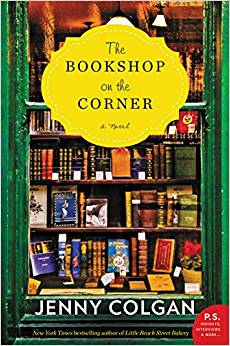 The Bookshop on the Corner is lovely, even if the name doesn’t quite fit. The main character’s bookshop is too unique to be that simplistically summed up.
The Bookshop on the Corner is lovely, even if the name doesn’t quite fit. The main character’s bookshop is too unique to be that simplistically summed up.
I should mention that this isn’t a romance, but there is a significant romance in the book—it just doesn’t really get going right away. So it doesn’t follow the traditional course of a romance novel, even if it does start off with a major problem for the heroine.
Nina Redmond is a librarian passionate about her job—she adores the matchmaking process of finding the right book for the right person. So it’s pretty devastating when she’s laid off. She doesn’t have a lot of options because the library system in Birmingham (that would be the one in England) doesn’t care about books anymore. They’re trying to cater to the younger crowd and focus on different media. The library offers all the staff made redundant a team-building/career training and during the training, Nina admits to always wanting to own a bookshop. Somehow this idea warps into owning a mobile bookshop.
Despite her friends’ reservations, Nina seeks out a van, finding one in Kirrinfief, a village up in the Highlands in Scotland, that looks perfect and affordable. She travels there and the owner of the van balks when he sees she’s “just a tiny woman,” someone he can’t envision driving his van. She goes back to Birmingham downtrodden and van-less, only to find out that a couple of the men she met at the local pub before meeting the van’s owner have offered to buy it from him and sell it to her. Everything seems great—until she can’t obtain the permits she’d need to park the van on her street in Birmingham. So she makes another decision that surprises everybody: she moves to Kirrinfief. She’s lucky enough to find a lovely modernized barn apartment on Lennox Farms, which is run by a gruff farmer (that would be Lennox himself).
Nina meets a variety of people through an early mishap involving a deer, her van, and a train and through her work, which goes pretty well. There’s a love interest in Marek, a lonely Latvian train driver, before Lennox really comes on scene for the main course. Nina’s life seems to be turning around. A lot of things are going well, but there are still a few challenges she has to face.
As I implied earlier, it’s a charming book. The setting of the Scottish Highlands is wonderful and so well-drawn. Colgan puts in just enough of the local flavor to give us the sound of the language with her ayes, coudlnaes, disnaes, an occasional Scots word, and even some overheard Gaelic, all without overdoing it. She paints the rural countryside and farm colorfully, too. It all made me miss being there.
The characters are all excellent and highly distinctive. Nina herself is so likable and relatable. She’s shy but got a streak of bold buried in her. Her best friend Surinder is entertaining. Marek is interesting and Lennox is intriguing from the beginning, even before I was sure he’d be a love interest. There are a few stereotypes among the secondary characters, but Colgan’s populated a whole town, so it’s all in fun. My favorite was the sullen teenager who Nina befriends.
I was not familiar with Colgan before this book, but I can say I’m definitely likely to read another one by her when I’m looking for something feel-good. I can recommend it to anyone who likes a complicated love story, hearing about books, or reading about rural Scotland.
 I’ve had this book a little while and was sort of saving it, not wanting to run out of Bowen’s novels. She’s prolific, but not that prolific. (If only…)
I’ve had this book a little while and was sort of saving it, not wanting to run out of Bowen’s novels. She’s prolific, but not that prolific. (If only…)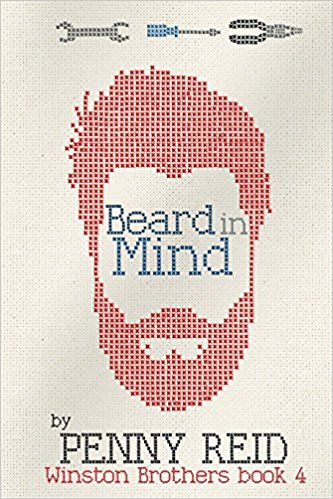 Now it’s finally Beau Winston’s turn. The overly pleasant, charming guy has been watching his brothers and sister get their HEAs started and he’s a little more jealous than he’d like to admit to himself.
Now it’s finally Beau Winston’s turn. The overly pleasant, charming guy has been watching his brothers and sister get their HEAs started and he’s a little more jealous than he’d like to admit to himself. Even though usually the main main character of an mf romance is the female lead, Anything for You is Connor O’Rourke’s story. Jessica Dunn is important, but we start and end with Connor and it was kind of fun that way.
Even though usually the main main character of an mf romance is the female lead, Anything for You is Connor O’Rourke’s story. Jessica Dunn is important, but we start and end with Connor and it was kind of fun that way. Jennifer Sylvester is kind of a joke in Green Valley, Tennessee, where she’s know as the Banana Cake Queen because—well, you can guess why. The recipe is a family secret. People don’t take her seriously. One of the locals called her “stranger than a vegetarian at a barbecue.” And on top of that, her parents are bullies, especially her mom. She’s forbidden to wear anything but her Sunday best clothes out in public. Now, she’s definitely old enough to be living on her own, but with the way her family treats her (borderline abuse), it’s really difficult for her to move out. They have her working full-time in the family bakery, but they don’t give her a salary. What she wants more than anything is to start a family, but with her so isolated, she never really meets men in any useful way.
Jennifer Sylvester is kind of a joke in Green Valley, Tennessee, where she’s know as the Banana Cake Queen because—well, you can guess why. The recipe is a family secret. People don’t take her seriously. One of the locals called her “stranger than a vegetarian at a barbecue.” And on top of that, her parents are bullies, especially her mom. She’s forbidden to wear anything but her Sunday best clothes out in public. Now, she’s definitely old enough to be living on her own, but with the way her family treats her (borderline abuse), it’s really difficult for her to move out. They have her working full-time in the family bakery, but they don’t give her a salary. What she wants more than anything is to start a family, but with her so isolated, she never really meets men in any useful way. Barefoot in the Sand is presented as a fun beach read, but I thought there was more to it than that—it wasn’t a lightweight story. No, there was a lot else going on, which is how I like my romances.
Barefoot in the Sand is presented as a fun beach read, but I thought there was more to it than that—it wasn’t a lightweight story. No, there was a lot else going on, which is how I like my romances.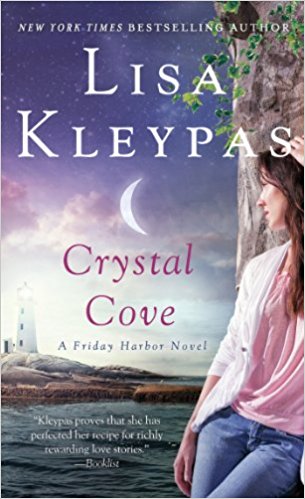 I really enjoyed the first three books in this series and was looking forward to this one, the fourth. There were elements of magic in all the other books, but they were very subtle and mostly unique. More magical realism than fantasy. This book embraces the magic of the series and runs with it and feels more urban fantasy than straight contemporary.
I really enjoyed the first three books in this series and was looking forward to this one, the fourth. There were elements of magic in all the other books, but they were very subtle and mostly unique. More magical realism than fantasy. This book embraces the magic of the series and runs with it and feels more urban fantasy than straight contemporary. I’ve been reading Higgins for reasons I previously explained, and I’m still feeling an ambivalence about her books. This book, too, is funny, and there were some great scenes in. But here, as well, was a silly heroine. Now, she wasn’t silly 100% of the time, fortunately. No, she was both very good at her job as a marketing specialist and with children.
I’ve been reading Higgins for reasons I previously explained, and I’m still feeling an ambivalence about her books. This book, too, is funny, and there were some great scenes in. But here, as well, was a silly heroine. Now, she wasn’t silly 100% of the time, fortunately. No, she was both very good at her job as a marketing specialist and with children. I’ve entered a bunch of romance contests. The way these things work is that judges read the beginning of the manuscript (usually between 15 and 30 pages of it) and give you as much feedback as they want. Sometimes you get a lot; sometimes a little. The feedback is always a bit all over the place. I had one entry where one judge said, “If the rest of the manuscript is as good as this, it’s publication-ready!” while another judge on the same entry gave me 60-something points out of 100 and said there was too much description and not enough internalization. So you have to take it with a grain of salt (and look for consistent criticism). They’re looking for things to comment on, after all, not just reading for pleasure.
I’ve entered a bunch of romance contests. The way these things work is that judges read the beginning of the manuscript (usually between 15 and 30 pages of it) and give you as much feedback as they want. Sometimes you get a lot; sometimes a little. The feedback is always a bit all over the place. I had one entry where one judge said, “If the rest of the manuscript is as good as this, it’s publication-ready!” while another judge on the same entry gave me 60-something points out of 100 and said there was too much description and not enough internalization. So you have to take it with a grain of salt (and look for consistent criticism). They’re looking for things to comment on, after all, not just reading for pleasure. I’m a total Bowen fangirl, I know. Bountiful is the fourth book in the True North series, which continues to deliver. I’m already looking forward to the next one, even though I’m not sure who it will be about (though I have my suspicions).
I’m a total Bowen fangirl, I know. Bountiful is the fourth book in the True North series, which continues to deliver. I’m already looking forward to the next one, even though I’m not sure who it will be about (though I have my suspicions). This book is a little unusual because it features a charming heroine who is both ridiculously famous as a comedic actor and overweight. I’m not particularly interested in famous people, so I thought I might not enjoy this one as much as some of Reid’s other books. But Sienna Diaz is an engaging character a little at odds with her status. And Jethro Winston is completely oblivious to and not remotely interested in who she is to the rest of the world, which is one of the things that draws her to him.
This book is a little unusual because it features a charming heroine who is both ridiculously famous as a comedic actor and overweight. I’m not particularly interested in famous people, so I thought I might not enjoy this one as much as some of Reid’s other books. But Sienna Diaz is an engaging character a little at odds with her status. And Jethro Winston is completely oblivious to and not remotely interested in who she is to the rest of the world, which is one of the things that draws her to him.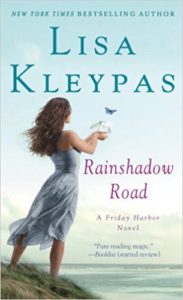 After reading the book 3 in this series, I went back and read the first one, which is a short novel set around Christmas-time featuring another Nolan brother (Mark). I enjoyed it so I got the whole series. Book 2 is about Sam Nolan and Lucy Marinn and is also set in the small town of Friday Harbor on an island off the Washington coast. Book 3 takes place at basically the same time this one does.
After reading the book 3 in this series, I went back and read the first one, which is a short novel set around Christmas-time featuring another Nolan brother (Mark). I enjoyed it so I got the whole series. Book 2 is about Sam Nolan and Lucy Marinn and is also set in the small town of Friday Harbor on an island off the Washington coast. Book 3 takes place at basically the same time this one does. This book is part of the Bluewater Bay (mm) series from Riptide Publishing, and it’s my first foray into the series. The series has an interesting premise—a Hollywood crew sets up residence in an old logging town on the Olympic Peninsula in Washington to film a popular TV show about shifters. This particular book features Nate, who’s on the show crew, and Seth, a local bartender.
This book is part of the Bluewater Bay (mm) series from Riptide Publishing, and it’s my first foray into the series. The series has an interesting premise—a Hollywood crew sets up residence in an old logging town on the Olympic Peninsula in Washington to film a popular TV show about shifters. This particular book features Nate, who’s on the show crew, and Seth, a local bartender.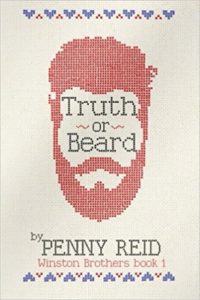 I have to admit, I am not enamored of beards. Stubble, yes—yum—but beards, not so much. I also am not overly fond of redheads. So Reid had to manage to convince a skeptic that Duane Winston was attractive.
I have to admit, I am not enamored of beards. Stubble, yes—yum—but beards, not so much. I also am not overly fond of redheads. So Reid had to manage to convince a skeptic that Duane Winston was attractive.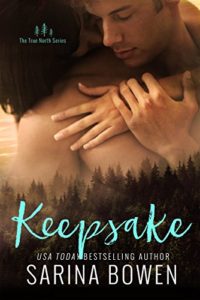 In Keepsake, Bowen continues the story of the Shipley farm, moving us back there full-time. This time it’s Zachariah’s story. Zach grew up in a polygamous cult and got kicked out for a small transgression (mostly because he was a young man, when the old men wanted the girls all for themselves). Zach’s been working at the Shipley farm for a while and he’s beginning to feel that his time there is coming to a close. Not because he wants it to be, but because he thinks they need it to be.
In Keepsake, Bowen continues the story of the Shipley farm, moving us back there full-time. This time it’s Zachariah’s story. Zach grew up in a polygamous cult and got kicked out for a small transgression (mostly because he was a young man, when the old men wanted the girls all for themselves). Zach’s been working at the Shipley farm for a while and he’s beginning to feel that his time there is coming to a close. Not because he wants it to be, but because he thinks they need it to be.